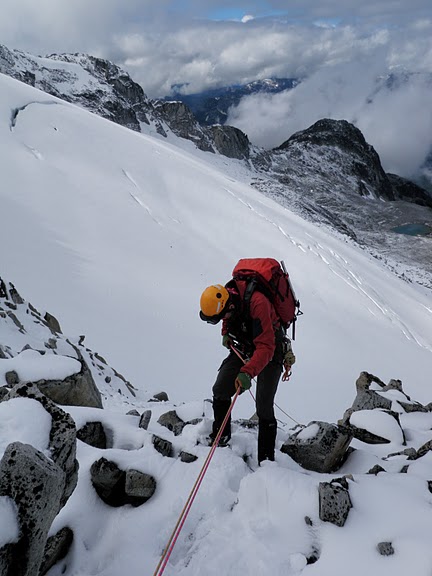Risk is part of Adventure

I have to take this opportunity to share the excellent letter written by Jon Heshka in the Vancouver Sun today on the nature of risk.
In light of recent incidents in the North Shore and elsewhere, there’s been a bit of an outcry from largely uninformed members of the press and the public that don’t really see the big picture. Jon (who I only know by reputation) does a really great job of explaining it.
Readers of this blog know that I share Jon’s view, and tend to cast the moral outrage some members of the public feel as an attempt to blame the victim.
When a rescue is reported, any hint of “wrongdoing” on the part of the subject of the search or rescue results in vitriolic comments about how they “had it coming” and how natural selection should take it’s course. These are followed by comments about how the subject should pay.
Many times I’ve written about the nature of SAR, and how an accident requiring rescue is a edge or corner case, and is just 2 bad decisions and some bad weather away from any one of us.
And let me just say this; search and rescue teams are not blameless.
How a SAR team talks about the subject of a search; if they describe them as “wrong”, that they “shouldn’t be there”, or that they were “out of bounds” (in a park?), or saying they caused trouble for the team (why’d you volunteer in the first place?)… all of these things are judgements, and set the tone for the following conversation on blaming the victim for their misfortune.
SAR teams should stick to reporting the facts; the conditions of the search, the progress, the techniques used, and the relative success or frustration felt by team members. This stuff is in the manual! Editorializing on the subject is not open for discussion. You really shouldn’t be surprised when such comments create the conditions for the “charge for rescue” debate.
Even if the subject of the search is clearly irresponsible, trespassing, or otherwise doing something illegal, it’s not your place to comment on this as you are a public servant. When was the last time you saw a doctor, or paramedic commenting on the actions of one of their patients on the news? Why do you think you are different?

Hopefully some teams see this a wake up call. Questioning the judgement of people and groups in public just helps drive the idea that outdoors people are reckless and should be charged for rescue.
Use the opportunity as a teachable moment for the affected person or group, to stress backcountry travel and survival skills. Don’t be surprised when public admonishment makes a good soundbite for charging for rescue.
Michael,
That was an excellent article by Jon Heshka and,I coudn’t agree with him or you more.
Thanks for your great blog.
Dino
I shouldn’t be, I guess, but I was surprised to find out Thompson Rivers U has an “Adventure Studies” department. Knowing that now, I’m not surprised that aomeone so eloquent as Jon Heshka is part of it.
He certainly takes a softer tone than Michael’s article, but Jon addresses the public, while Michael speaks to SAR volunteers.
Thanks for the comments Charles, Dino and @fkarcha. I’m sure if I wanted to get a letter into the Vancouver Sun I would have to soften my tone as well.
It’s the prerogative of running a web site that I get to say whatever I like, however I want to, within reason of course.
Recently I get the most angry at the uninformed comments on news web site, and the barely better level of reporting in the media. I should just stop reading/watching.
I know what you mean Michael.My tongue has quite a few bite marks in it as well.
Brilliant article by John Heshka, finally somebody put things into right perspective. There was also similar short article by some brave lady in North Shore news some weeks ago. Yes, as much as I am a fan of any volunteer based rescue team (I was part of national caving rescue team in Europe 30 years ago) I am very disappointed how SAR (although there is usually only one media star speaker) speaks about people they rescue, calling them idiots etc. I hope that not all SAR members share that view, such people do not belong to mountaineering community where respect to others is as important as offering help. Thanks Dino and Charles for supporting Michaels view